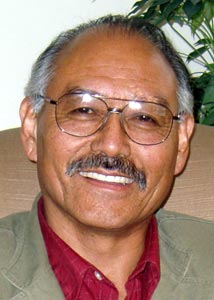Name: Tsewang Khangsar
(Alias: No)
Gender: Male
Interview Age: 57
Date of Birth: 1951
Birthplace: Yancho Tangkar, Utsang, Tibet
Year Left Tibet: 1959
Profession: N/A
Monk/Nun: No
Political Prisoner: No

Interview No.: 93
Date: 2006-06-12
Language: English
Location: San Francisco, California, United States
Categories: Buddhist Traditions
Keywords: Bon, brutality/torture, Buddhist beliefs, childhood memories, Chinese -- first appearance of, Chinese -- oppression under, Chinese rule -- life under, escape experiences, refugee in India -- life as, Utsang
Summary:
Tsewang Khangsar, who is from Yancho Tangkar in the south central part of Tibet, lost his father at an early age. He and his sister were brought up by their mother, who faced many challenges in raising her children by herself. Tsewang Khangsar gives a vivid, in-depth account of Tibetan people's beliefs, customs, language and their unique characteristics as "human beings." He describes the Bon religion and its influence on Tibetan culture.
Tsewang Khangsar describes how Tibetans held on to their sanity despite the suffering and trauma that they underwent from the Chinese occupation of Tibet. He discusses the Chinese invasion and the subsequent cultural, ecological, historical, religious and social annihilation of the Tibetan identity. He presents his ideas on how the Tibetan people can meet these difficult challenges. He also explains his theory about why Tibetans have the strength to endure such hardships and deal with their anger towards the Chinese.
Tsewang Khangsar served as a teacher, headmaster and principal of Tibetan Children's Village in Dharamsala, India, for 20 years before immigrating to the United States.
Interview Team:
- Marcella Adamski (Interviewer)
- Kerry Rose (Videographer)

